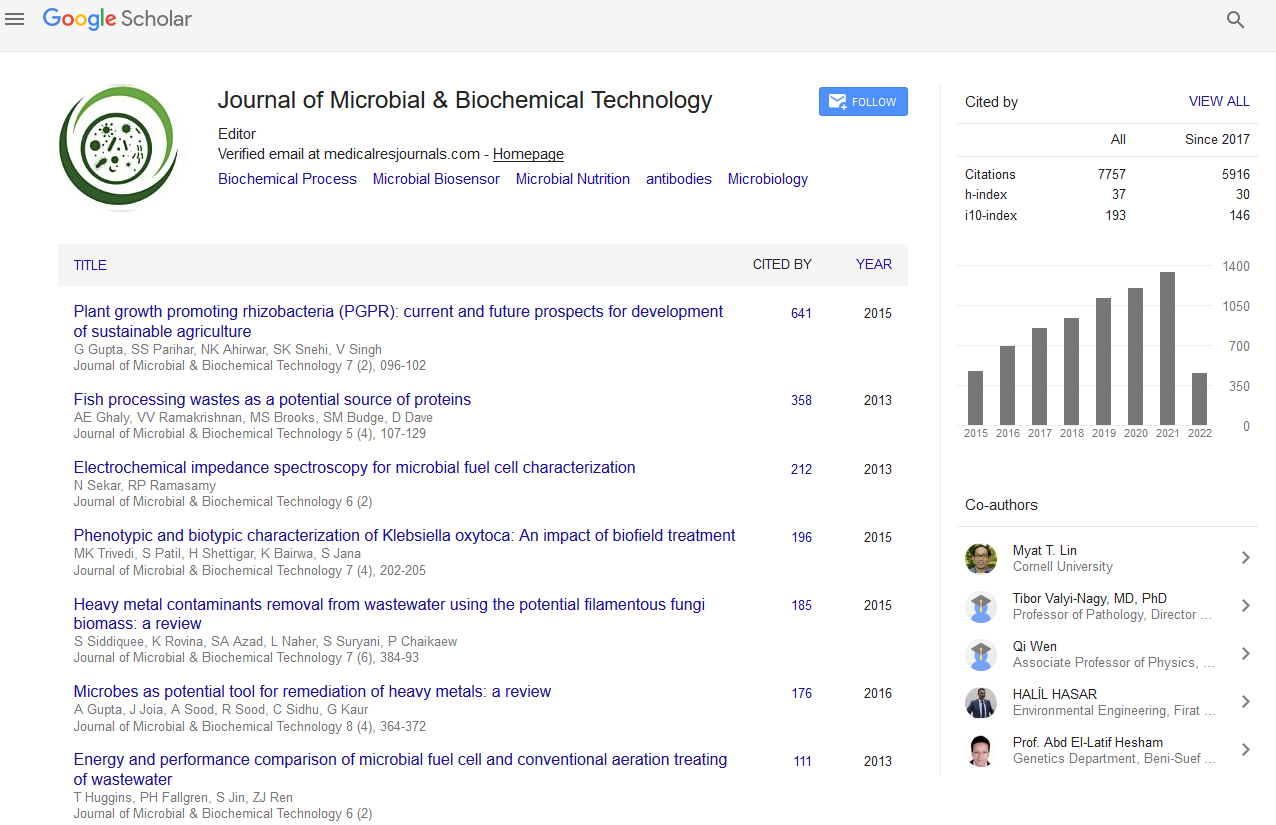PMC/PubMed Indexed Articles
Indexed In
- Academic Journals Database
- Genamics JournalSeek
- Academic Keys
- JournalTOCs
- China National Knowledge Infrastructure (CNKI)
- Scimago
- Access to Global Online Research in Agriculture (AGORA)
- Electronic Journals Library
- RefSeek
- Directory of Research Journal Indexing (DRJI)
- Hamdard University
- EBSCO A-Z
- OCLC- WorldCat
- SWB online catalog
- Virtual Library of Biology (vifabio)
- Publons
- MIAR
- University Grants Commission
- Geneva Foundation for Medical Education and Research
- Euro Pub
- Google Scholar
Useful Links
Share This Page
Journal Flyer

Open Access Journals
- Agri and Aquaculture
- Biochemistry
- Bioinformatics & Systems Biology
- Business & Management
- Chemistry
- Clinical Sciences
- Engineering
- Food & Nutrition
- General Science
- Genetics & Molecular Biology
- Immunology & Microbiology
- Medical Sciences
- Neuroscience & Psychology
- Nursing & Health Care
- Pharmaceutical Sciences
Norovirus: A major challenge in the food chain
2nd International Conference on Clinical Microbiology & Microbial Genomics
September 16-17, 2013 Hampton Inn Tropicana, Las Vegas, NV, USA
Tineke H. Jones
Keynote: J Microb Biochem Technol
Abstract:
Norovirus is estimated as the number one cause of domestically acquired food borne illness in the US and Canada. The main route of transmission is person-person but recent estimates suggest that about 30% of cases of norovirus are transmitted through food, especially produce and other ready-to-eat foods. While the detection and characterization methods for norovirus in clinical samples is fairly well developed, linking a norovirus outbreak to foods is a major challenge because of low numbers of virus particles in foods and the presence of inhibitors in foods. Even if norovirus is detected by molecular methods, it is impossible to determine if the virus was infectious because an effective cultivation method does not exist. Microbial intervention strategies are designed to control bacteria in the food chain but may not necessarily be effective against food borne viruses, particularly norovirus, which is extremely resistant to environmental stress. The lack of an effective cultivation method makes it difficult to study the survival of norovirus in food because cultivable surrogates may not behave in a similar manner. Although norovirus infections are considered mild and self-limiting, the burden of disease is quite significant. Efforts to design effective vaccines are challenged by the wide antigenic diversity of norovirus strains and a regular emergence of new pandemic strains.
Biography :
Tineke H. Jones (Ph.D. University of Alberta) has extensive experience in meat microbiology with Agriculture and Agri-Food Canada. Her research focuses on the detection of recognized and emerging foodborne pathogens of zoonotic and human origin in food and water, determining their point of entry and their survival or inactivation in the food chain and watersheds impacted by agricultural activities. She is a member of the editorial board of the International Journal of Food Microbiology and the management board of the Alberta Meat Network. She belongs to the Canadian Meat Science Association, the International Association for Food Protection and the International Society of Food and Environmental Virology. She has published 43 peer reviewed articles and 3 book chapters in food safety.


